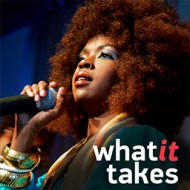I really try every day to be individual, and not just in my style or my look or my music, but in my approach to life.
Lauryn Noelle Hill was born in East Orange, New Jersey, and grew up in nearby South Orange. From an early age, Lauryn was fascinated by music. Her father, a computer consultant, and her mother, a teacher, were both musical, and her older brother, Malaney, played a number of instruments. The young Lauryn Hill enjoyed school, sports and other activities, but music was an exceptional passion. She spent hours on end listening to records in her room, absorbing the classic soul music of the ’60s and ’70s. She performed at every opportunity; at age 13 she appeared as a contestant on Showtime at the Apollo. With the support of her parents, she pursued singing and acting professionally in her early teens, appearing on local television and auditioning for film roles in nearby New York City.
In high school she met two young immigrants from Haiti, Pras Michel and Wyclef Jean, who invited her to join the hip hop group they were forming called the Fugees (short for refugees). Lauryn became one of the group’s songwriters, as well as a rapper and vocalist. The Fugees performed around the New York area while submitting demo recordings to the major record companies.
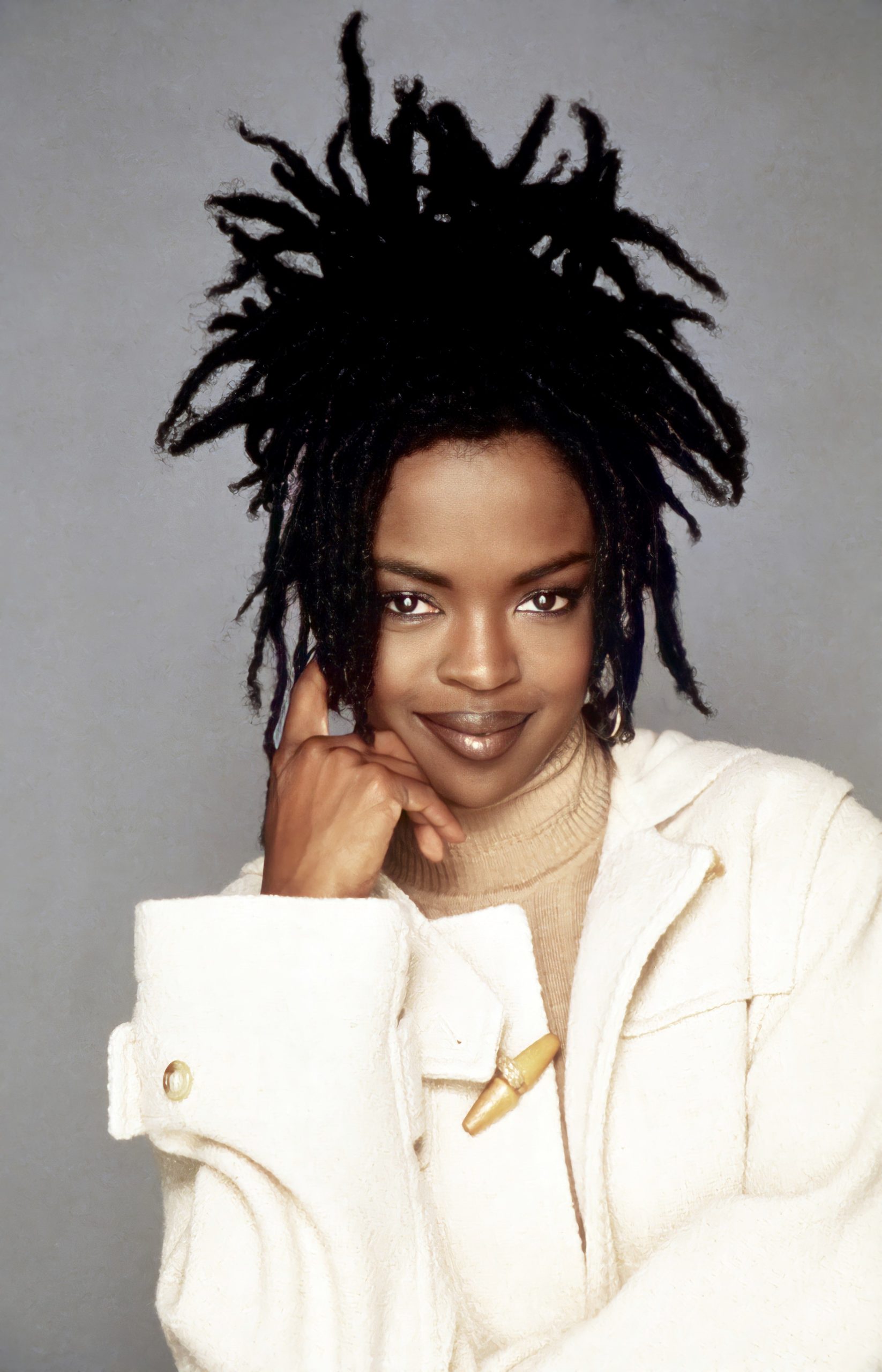
Lauryn Hill continued to pursue her acting career. At age 17, she played a recurring role on the daytime television drama As the World Turns. The following year, she appeared in a prominent singing role in the feature film Sister Act 2: Back in the Habit, starring Whoopi Goldberg. Hill’s performance in Sister Act 2 won considerable attention, and she followed it with roles in a number of films, including King of the Hill. She had not neglected her studies either, and earned admission to Columbia University. At first, she tried to balance her studies with her professional work, but in her freshman year, the Fugees signed a record contract and Lauryn Hill left university to concentrate on her performing career.
The first Fugees album, Blunted by Reality, was released in 1994. It attracted some positive reviews but failed to establish the group as a major presence on the hip hop scene. For their second album, they varied their sound, incorporating elements of reggae and old school R&B, and sharpened their lyrics as well, introducing more explicit social commentary than on their first outing. When it was released in 1996, The Score was an immediate sensation, winning rave reviews and shooting to the top of the Billboard 200 and the R&B charts. The album included three hit singles; the biggest was Lauryn Hill’s version of “Killing Me Softly with His Song,” a ballad made famous in the 1970s by singer Roberta Flack. The song went to Number 2 on the U.S. Singles chart (Number 1 in Britain), and brought the group a Grammy Award for Best R&B Performance of the Year. In its first year of release, The Score sold six million copies. The Fugees were now one of the biggest acts on the scene, with a hectic touring schedule that put a strain on their collaboration and their friendship.
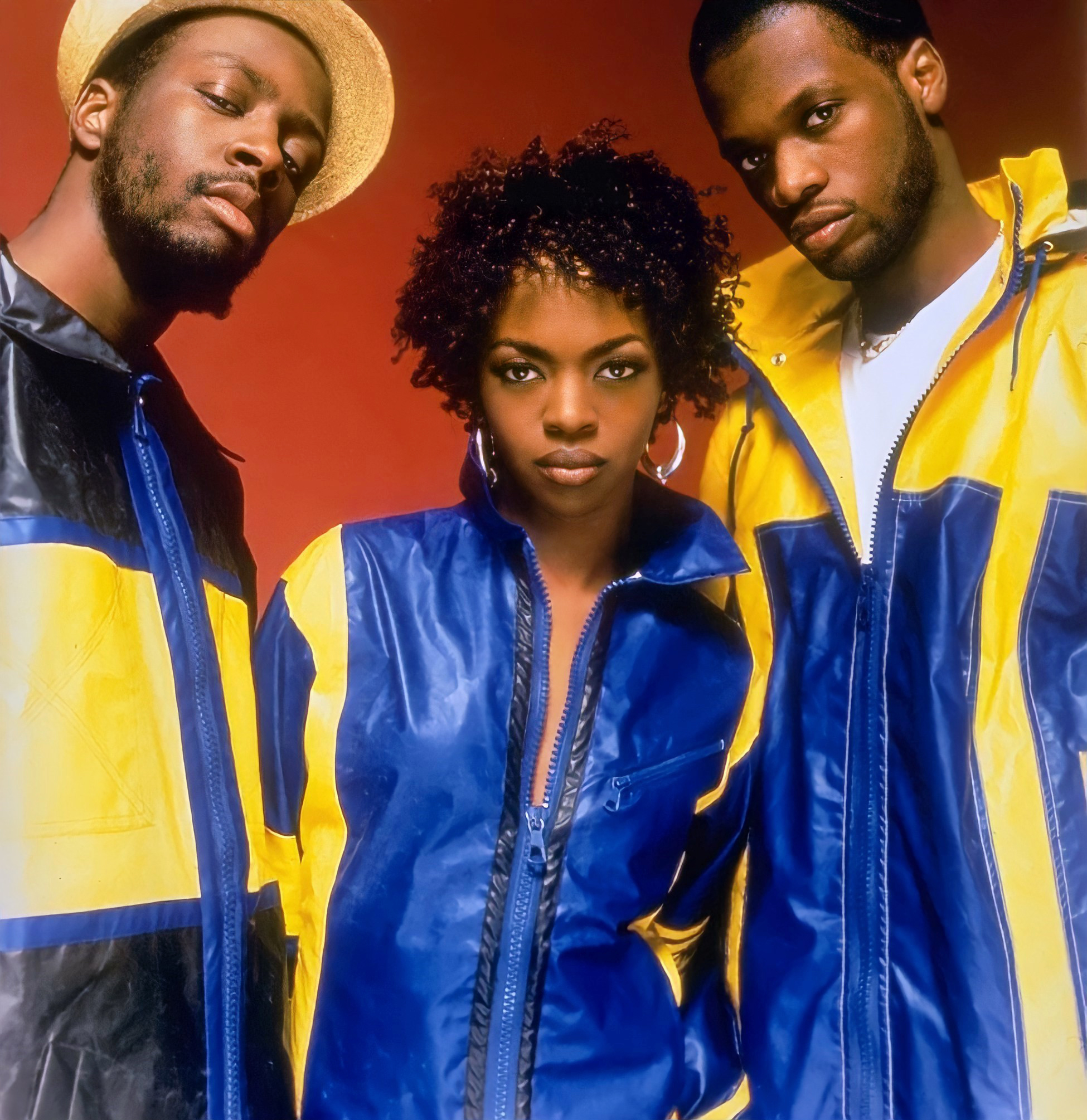
After a turbulent relationship with her bandmate Wyclef Jean, Lauryn Hill met and fell in love with Rohan Marley, son of reggae legend Bob Marley. While Hill and Marley were expecting their first child, she began writing songs for a solo album. After the birth of her son, Zion David, she went back to work producing and recording her solo debut, The Miseducation of Lauryn Hill. The music was even more varied than that of The Score, drawing on her love of old school soul and R&B, while her lyrics treated all the challenges that sudden fame posed for a young woman deeply committed to her own artistic and spiritual values.
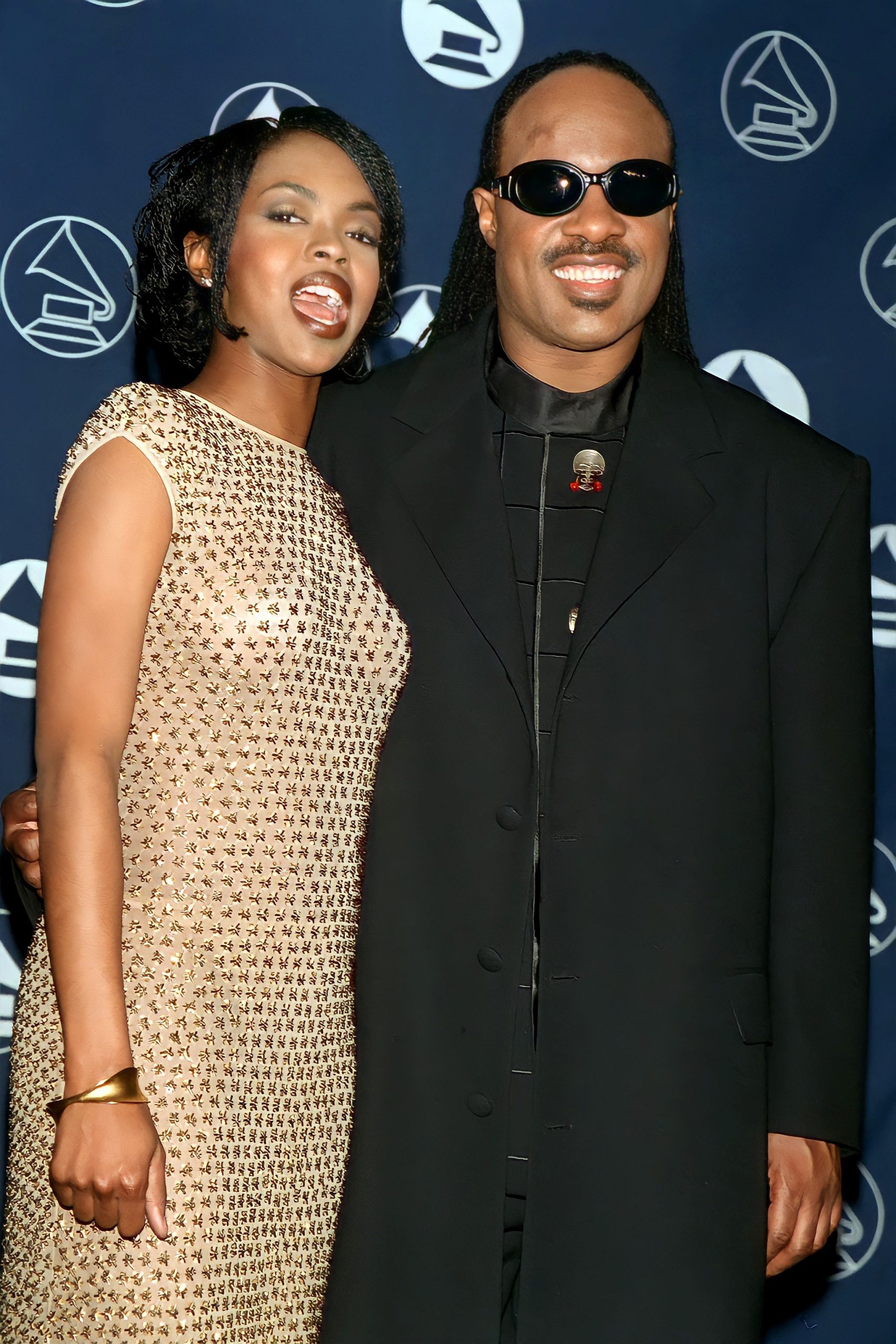
Released in 1998, the album topped the Billboard 200 chart for four weeks, and the Billboard R&B Album charts for six weeks. Of the five singles released from the album, “Doo Wop (That Thing)” debuted at Number 1 on the Billboard charts. Miseducation received delirious reviews and sold 19 million copies. At the 1999 Grammy Awards, Hill broke a number of records, becoming the first woman to be nominated in ten categories in a single year, and the first woman to win five trophies in one night: Album of the Year, Best R&B Album, Best R&B Song, Best Female R&B Vocal Performance and Best New Artist. Magazines contended to put Lauryn Hill on their cover, and she was deluged with lucrative film offers, but she chose to concentrate on her music. By the end of 1999, two years into her solo career, her record sales and touring had earned her an estimated $25 million. In addition to her own performing schedule, she served as co-producer of Carlos Santana’s Supernatural, and won a second Grammy Award for Album of the Year. She is the only female artist to win the Album of the Year award in two consecutive years.

At the height of her success, Lauryn Hill surprised the music world with her decision to withdraw from performing and seclude herself with her growing family. She continued to write songs, and in 2001, she recorded a live performance of her new, more contemplative material for MTV, accompanying herself on acoustic guitar. The performance was broadcast the following year. The live recording was released as Unplugged No. 2.0. Although Unplugged received mixed reviews, it debuted at Number 3 on the Billboard charts, and sold over a million copies in the first four weeks.
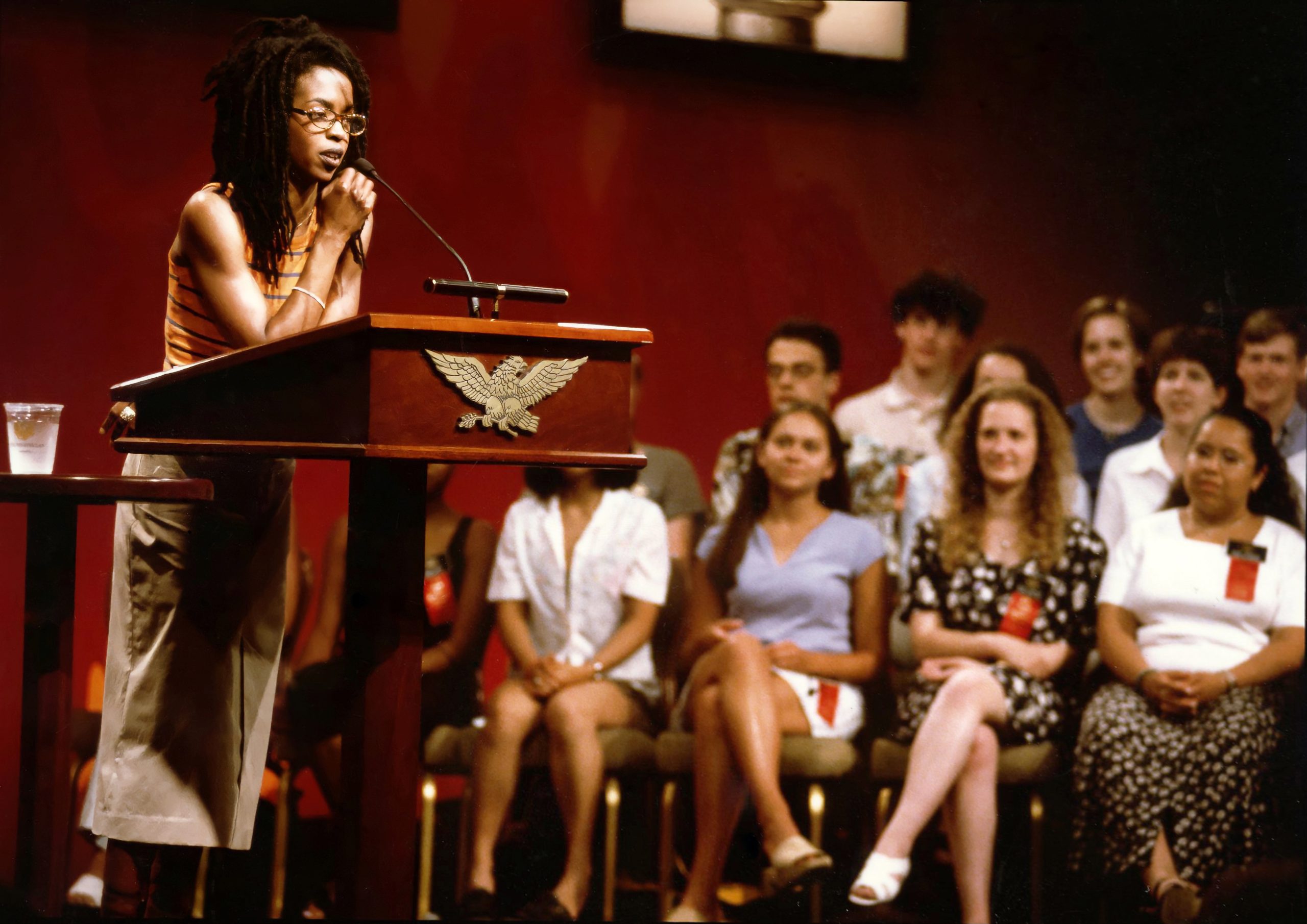
Hill agreed to appear in a 2003 Christmas concert at the Vatican, where she shocked the audience by reading a prepared statement denouncing the Catholic Church’s secretive treatment of sexual abuse by members of the clergy. In 2004, Hill rejoined the Fugees at an outdoor festival in the Bedford-Stuyvesant section of Brooklyn, New York. The performance was captured in the concert film Dave Chappelle’s Block Party, and includes her rendition of “Killing Me Softly.” Hill and the other Fugees performed again at the 2005 BET Music Awards and embarked on a month-long European tour, but old tensions resurfaced and the group disbanded for good.
In 2007, Lauryn Hill released a compilation of old and new recordings, Ms. Hill, featuring selections from Miseducation, as well as her contributions to film soundtracks and other new songs. She attempted a European tour in Spring 2009 but was forced to cancel after the first two shows due to ill health. By January 2010, she was well enough to resume live performances, playing festivals in New York, California and Florida, and touring New Zealand, Australia and Brazil. A number of her previously unreleased songs were released on the Internet during this period, and an unofficial compilation of her recent material appeared under the title Khulani Phase. The following year, she performed at music festivals in New Orleans, Las Vegas and Washington, and with hip hop band The Roots in Philadelphia.

In 2012, the IRS sued Lauryn Hill for back taxes. She pled guilty to three counts of tax evasion for failing to file income tax returns for the years 2005 through 2007, and agreed to pay a reported a $1.5 million in back taxes and penalties. Following this judgment, she resumed a more intense performing schedule, appearing with rapper Nas on the “Life Is Good/Black Rage” tour. In May 2013, she was sentenced to three months in prison and three months of home confinement with electronic monitoring. She was released from prison in Connecticut in October 2013, after serving slightly less than three months. Her time in prison was reduced based on a number of factors, including good behavior. On the eve of her return from prison, she released a new recording, “Consumerism,” which featured her characteristic high-speed rapping.
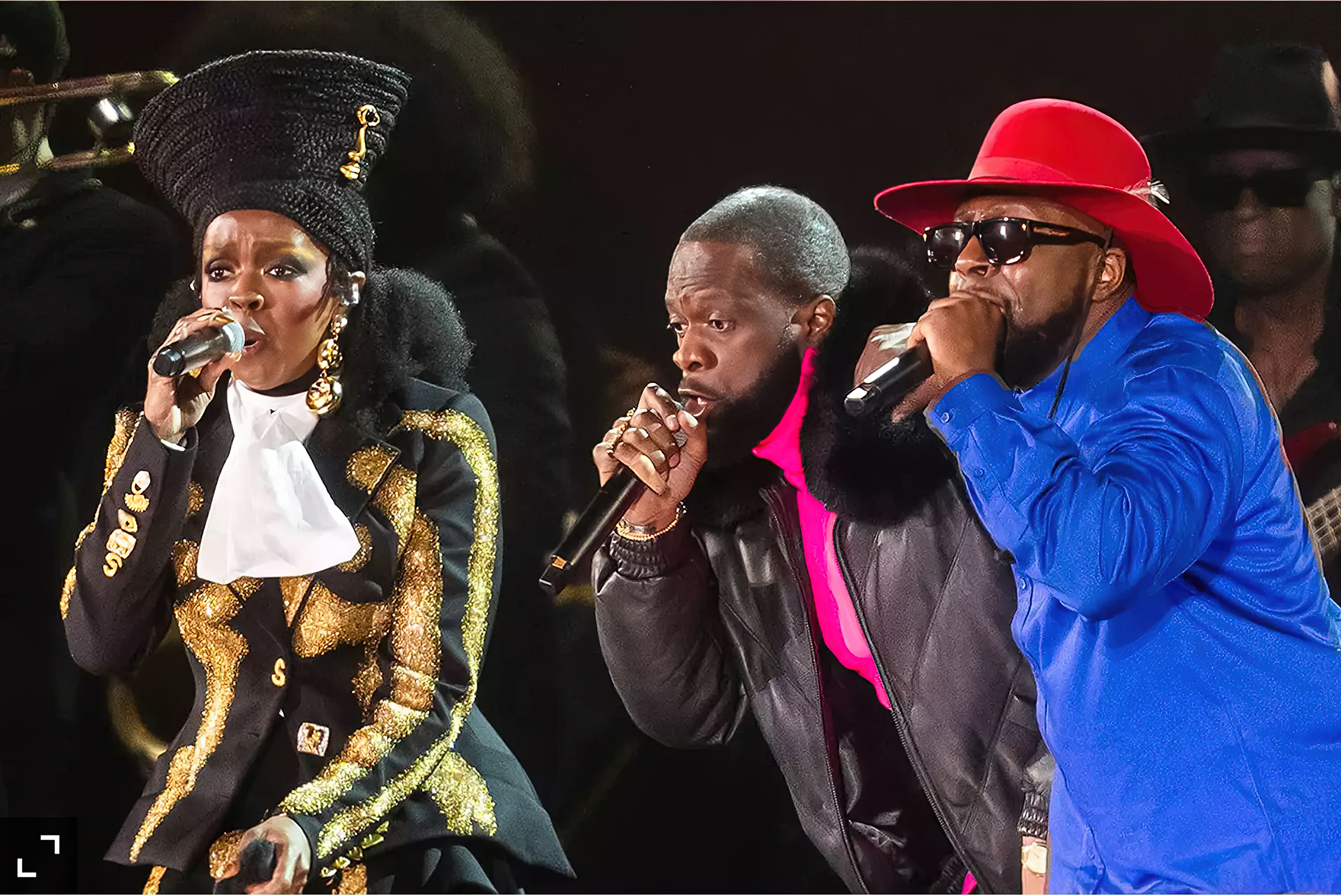
In September 2023, Lauryn Hill and the iconic group, the Fugees, reunited for the annual Global Citizen Festival in New York’s Central Park. This significant reunion supported the global initiative to address the hunger crisis. Hill performed some of her classics, and was later joined by Wyclef Jean and Michel, delivering memorable hits. In October, Lauryn Hill embarks on her 25th-anniversary tour commemorating The Miseducation of Lauryn Hill. The Fugees are slated to make select appearances throughout the tour, which is set to conclude in November in Seattle, signaling that the Global Citizen Festival was not the sole opportunity for fans to see the ’90s rap icons perform together.
In May 2024, Apple Music honored Lauryn Hill’s groundbreaking 1998 album The Miseducation of Lauryn Hill as one of the greatest albums of all time. This accolade further solidified her profound influence in the music industry. This recognition is a testament to the enduring impact and timeless quality of her work, affirming her legacy as a trailblazer in the world of music.
Over the years, Lauryn Hill has maintained homes in Florida and the Caribbean, while preserving close ties to her childhood home in New Jersey. A mother of six, she may continue to write and perform at her own pace, but she has long made it clear that she will always put family first.

Lauryn Hill is an internationally acclaimed singer, songwriter and record producer. A musically precocious child from South Orange, New Jersey, she was only 13 when she joined the innovative hip hop group the Fugees. Academically accomplished as well as musically gifted, she took time off from her musical career to attend Columbia University. The worldwide success of the Fugees’ album The Score thrust Lauryn Hill into the international spotlight.
She exceeded her admirers’ most ambitious expectations with her debut solo album, The Miseducation of Lauryn Hill. Writing, arranging or producing nearly every track on the album, Hill created a brilliant collection of songs, embracing rap, soul, reggae, old school R&B and Motown styles in a modern hip hop context. Songs from the album, including “Doo Wop (That Thing)” and “Every Ghetto, Every City” ruled the airwaves for months. Hill also dominated the 1999 Grammy Awards, taking home five trophies — a record for a female artist — including Best New Artist and Album of the Year.
Following the success of Miseducation, Lauryn Hill stepped away from the spotlight to concentrate on raising her growing family. In 2002, she released MTV Unplugged No. 2.0, a collection of live performances featuring quieter, more contemplative songs, accompanying herself on acoustic guitar. In 2010, the music industry celebrated the 12th anniversary of the release of The Miseducation, and Lauryn Hill, now a mother of six, embarked on a national tour, her first in years.
Early in your career with the Fugees, critics began to talk about the possibility of your having a solo career. How did you decide to leave the group and make a go of it on your own?
Lauryn Hill: I think everything happens in time. There’s a time for everything. There’s a time to be in a group, and there’s a time to be solo. At least there was for me. If I had had it my way, I would have been in the group forever. I enjoyed the group atmosphere. I thought it was so good to have two guys on stage backing you up. But the interesting thing about entertainment is that when you’re struggling, everybody goes in with the same goals. Somewhere along the success area, you start to look at everyone around you and go, “Wait a minute. Where are you going? Where are you heading? Because I’m going this way. What happened? I thought we were all on the…” and sometimes success can do that. Sometimes it really illuminates creative differences, spiritual differences, emotional differences. Just like a young person would think that, “My fifth grade friends are going to be my friends forever, throughout high school, throughout…” and it’s not that they cease being your friends, but sometimes you just mature to a place and some people get there faster, some people don’t. Hopefully, ultimately everyone catches up. But it’s really interesting, because I didn’t actually make a decision to be solo. It really just happened. I promise you that. It’s hard to explain, but I had intended to be in the group forever, until I found myself in circumstances where I felt the inner desire to express myself, freely and openly without any constraint, without anybody saying, “Hey, you can’t say that. That’s not fly. You can’t say that. People won’t…” You know what I mean? So you know the only way I could have done that was in doing a solo release.
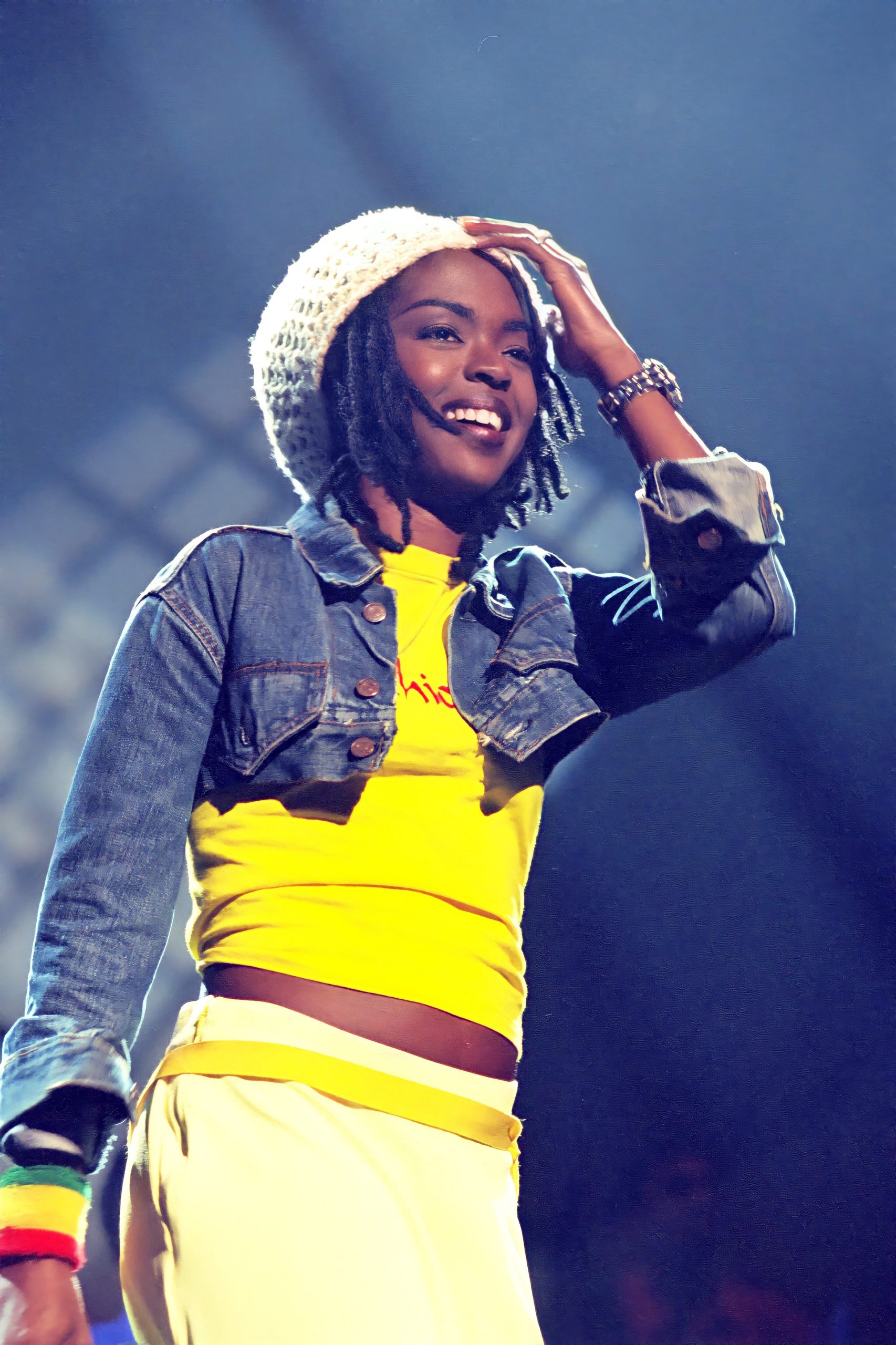
It’s one thing to go solo, but producing your first album yourself must be quite a challenge.
Lauryn Hill: The good part about it is I think that God surrounded me with the right team, with the team that I needed to help me exercise all of my ideas. You need that. You need that army, you need that force. You know what I mean? No man is an island. So I refused to take all of the praise for that, because they were talented musicians, they were talented engineers, they were talented production assistants who really, really were there. And if I had an idea, I was able to express it, and made them stay and work diligently until it was expressed. I appreciate the fact that if there’s a will there’s a way.
You called that album The Miseducation of Lauryn Hill. It’s a provocative title. Tell us about the word “miseducation.” People can put a lot onto it.
“Miseducation,” every day it means something more to me, actually. People automatically thought, “Maybe her teachers didn’t teach anything.” But that wasn’t it. The meaning behind it was really sort of a catch in me, learning that when I thought I was my most wise, was really not wise at all, and when my humility and innermost places that most people wouldn’t expect a lesson to come from — that’s where I learned so much. I term the phrase “miseducation,” not because it was a miseducation per se, but just because it was sort of contrary to what the world says is education. This education that came from life and experience, and not necessarily all academic but related to living.
That album was very personal, wasn’t it?
Lauryn Hill: It was personal. That’s probably the only reason I put my name in the title.
I had gone through a lot, a huge emotional and spiritual battle prior to the creation of that album. And the funny thing is that while I was going in the battle, I couldn’t see my hand to spite my face. I mean, I really couldn’t see anything, because I was so emotionally entangled in everything that I’ve gone through. But it was like, once I was delivered from that situation, and once I got the perspective — was able to look back at heartache, and look back at pain and disappointment — for some reason it all was so clear. It was just like the picture started to form itself. The songs started to create themselves. I was able to look back and be a narrator of my own situation. But the interesting thing was that it couldn’t happen while I was in the middle of the confusion.
What was so confusing?
Lauryn Hill: It was about a young woman in the music industry, and the pitfalls, the snares, the traps, and they don’t stop. They keep coming, they don’t stop, they keep coming. They don’t stop. I think that because I grew up in such a loving family structure, I thought that everybody did. Therefore I thought that everybody reaped the benefit of that love. Pretty naïve way to think. And so I learned very important lessons about people and their voids, and how when you have voids — like a black hole just sucks and consumes everything into it. And I met a lot of those people. Here I was this ship, I just want to love, but a lot of black holes, a lot of people with a lot of deep, deep painful voids who found it easy to take advantage, and to manipulate and to deceive someone. With me who just — all I want to do is love.
And you were young.
Lauryn Hill: Very young, very young.
I had to learn from those things, painfully, but even now I thank God for correction. I even thank Him for hardship, because it shows me exactly where I am, where I was, and where I need to be. So it was important, it was a very important record. Interestingly enough, that record was all about what I feel, and it’s going to be interesting to see what the next record becomes, because that will probably be about what I think, as opposed to what I feel, everything that I feel. It will be what I feel still, but it’s also going to be something conscious. A lot of that was unconscious creation, unconscious creativity, because I was so overwhelmingly emotional. It was just like I couldn’t… I just had to write about this.
Are you saying that the “miseducation” was a feeling?
Lauryn Hill: I don’t know if I really want to continue with that thought and I’ll tell you why.
Every time that God navigates my ship, there’s nothing cerebral going on. There’s very little thought. It’s almost as if I have the directions. Every time I try to do it myself, I’m conjuring up my own concoction and trying. It’s a little more difficult to do it that way, because it takes a lot of thought and it takes a lot of energy. But it’s like, when I’m led, it kind of really is just, it’s all there and it’s clear. “These are your orders. Just go forth and carry them out.” So I was going to say that this album gets to be what I think, but I don’t know. Who knows? Who knows what that will be? Because I think that what I’ve consciously decided to do was be patient and wait for those instructions again, as opposed to the instructions from the record company. Unfortunately, I can’t fulfill their needs. I can’t, because it’s devoid of all feeling. You know what I mean? I have to make sure that what I create, I never want to condescend. There are a lot of people who condescend to the audience. They just think, “They’ll like anything. Just throw a beat on it and put your voice on it.” But if it doesn’t move me, then I don’t think it’s worthy enough to put out there and move someone else. You know what I mean? It has to be something that is — personally — is something that I need personally. That’s my barometer for whether or not it’s good for the people. Not just anything. “Just make a beat. It’s hot, throw it out there.” I can’t use that barometer. That doesn’t work with me.


